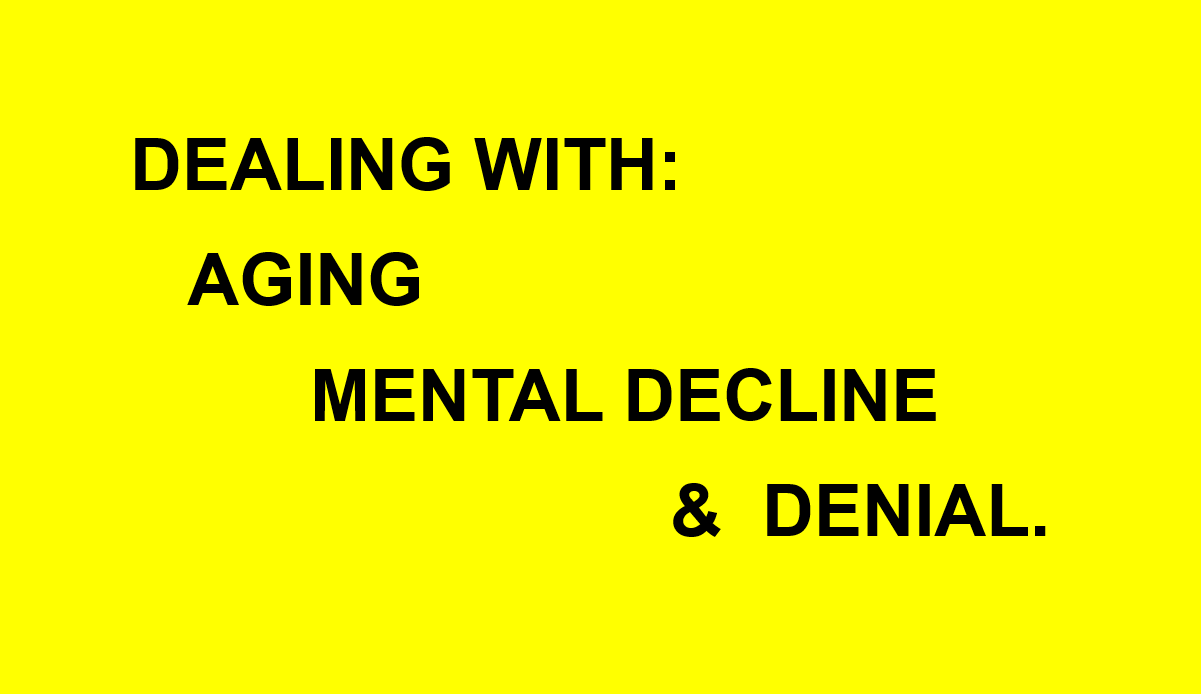
Recently, the release of the audio recording of Special Counsel Robert Hur’s interview of Joe Biden exposed, in painful detail, evidence of the president’s cognitive decline. Biden’s Interview With Hur Confirms What Many Suspected – The New York Times
The tape confirmed what critics of the president had previously alleged. Likewise, it raised a firestorm and accusations of a cover-up. Republicans claimed that Democratic leadership conspired to keep his failing mental status from the American people.
As big as this story has been, I believe its real significance lies elsewhere. Indeed, Joe Biden’s decline shines a spotlight on the larger issue of age-related cognitive decline.
Hopefully, the president’s situation can be a wake-up call for America. We must start talking about this universal human problem: How to understand and deal with age-related cognitive decline that’s gone too far.
Due to its emotionally painful nature, talking about and confronting cognitive decline is often avoided. Here are some thoughts concerning this difficult topic.
Many People Are Working Longer.
It is no secret that people are working longer than they used to. Instead of retiring at age 65, modern technology and medicine have extended the length of time many continue to work. For example, both the Queen of England and Dr. Ruth Westheimer worked until the day they died at 96. Likewise, Pope Francis served until he passed at 87.
My concerns here are not to offer specific guidelines or rules for when an individual is unfit to work, but to help folks talk about the problem. We need to raise the question and increase understanding of the psychological and spiritual crisis that the loss of mental faculties creates.
The Emotional Crisis of Cognitive Decline
Of course, it would have been better if President Biden had acknowledged his condition and stepped aside. Unfortunately, for many, it seems to be beyond their capacity to have such a presence of mind and courage to accept the unacceptable.
I believe that his experience of gradually losing one’s mental faculties is no different than anyone else’s. It is so terrifying that distressed emotions prevent a more rational response.
Indeed, Biden’s dilemma is our own. The toll that aging takes on our mental abilities can happen to us all and is becoming a crisis that no one wants to talk about. The Quiet Crisis : Adult children. aging parents | Pastoral Counseling Syracuse NY
Maybe it’s obvious, but we need to think about how to handle the diminished capacity and what the losses point toward: death. And here is the odd thing. Death is scarier for people who are far from it than it is for those for whom it is imminent. Is Dying Our Greatest Fear? | Psychology Today. In other words, fears and anxieties deter the folks who need to make essential decisions from doing so.
Instead of avoiding, we need to empathize and understand the emotional obstacles both the person and their friends and family experience.
Often, the one who has lost mental capacity is in denial. Either they are unaware or are unable to accept the horrifying reality.
Many times, those who attempt to point out the problem are met with anger and hostility. Thus, effective responses need to overcome both the resistance from the individual and the avoidance or denial on the part of family and friends.
Breaking the Denial, Encouraging Conversation
In order to promote meaningful conversations, we need to change expectations and normalize the occurrence of cognitive decline.
Despite the obstacles, we need to encourage conversations before a difficult situation arises. Going forward, serious and reasonable discussions must take place actively.
Discussion must include talking about difficult things. Rather than avoiding, we must acknowledge the difficulty of the situation and ask difficult questions: How to determine when an impairment makes adequate functioning impossible? How to confront a person who refuses to acknowledge or accept their decline?
Although most of us aren’t involved in high-level politics, many know what it’s like to deal with things such as taking the car keys away from granddad when he could no longer safely drive. It is important that we normalize and understand that losing our mental capacities is often a part of aging, just like diminished physical capacities.
Many of us will eventually face the gradual loss of our ability to think clearly. Accepting this eventuality will replace anger with compassion and avoidance with acceptance.
The Spiritual Dimension of Aging
Ultimately, the solution to dealing with aging and cognitive decline is spiritual. Apart from the emotional aspects, the loss of a person’s cognitive functions raises profound and intimidating spiritual questions, i.e. questions about the ultimate meaning and purpose of life.
Awareness of this loss raises anxiety over the encroaching reality of death. Even persons of faith are not exempt from death’s daunting spectre. Even so, turning to one’s faith in times of anxiety is comforting.
Both the aging person and those around them need to embrace life and acknowledge the inevitability of dying as part of the grand mystery of existence. Neurologically, accepting this reality calms fears and makes reasonable responses possible.
While neurological science helps us understand cognitive impairment, the real challenge is raising public awareness and developing reasonable approaches to dealing with affected individuals.
That said, dealing with end-of-life issues is complicated and beyond rational control. Above all, when discussing this mystery with others, we must emphasize empathy and compassion.
Rev. Michael Heath, LMHC. Fellow A.A.P.C. 5 18 2025



